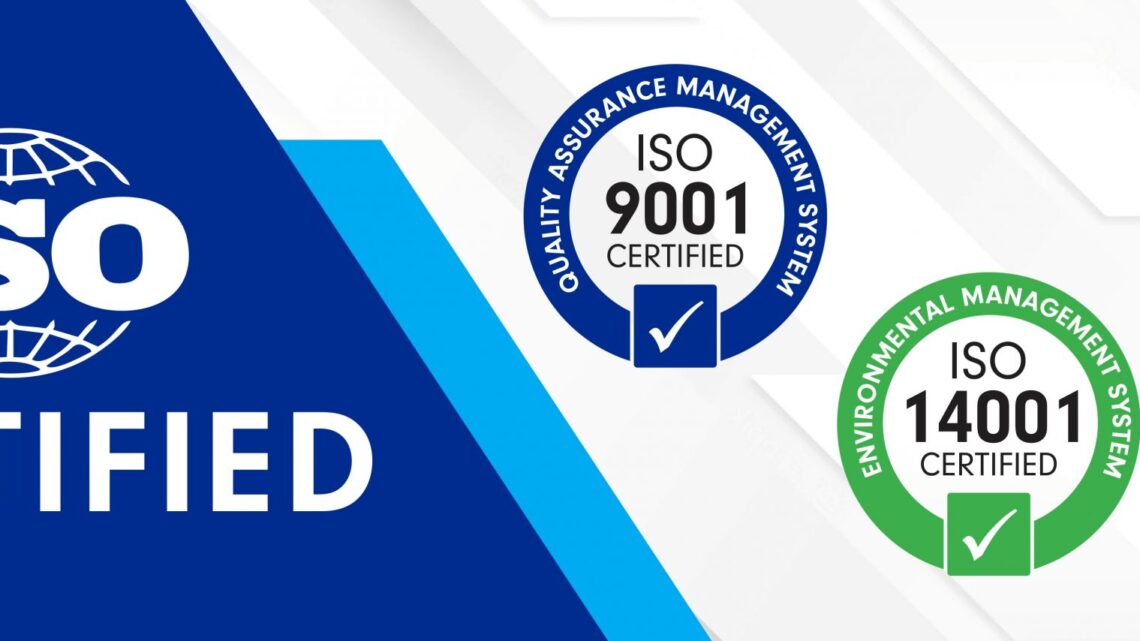ISO Certification Registration

ISO Certification is a Globally Recognized Standard for Quality Management Systems that helps Businesses operate more efficiently and effectively. It is an essential tool for organizations that want to enhance their credibility, improve customer satisfaction, and increase profitability. In this article, we will discuss the benefits of ISO certification, the different types of ISO certifications available, the documents required for ISO certification, the procedure for ISO certification registration, and frequently asked questions related to ISO certification.
Benefits of ISO Certification: There are many Benefits of ISO certification for companies, including:
- Increased Credibility: ISO certification provides a third-party verification that a company meets the required international standards, which enhances the company’s credibility in the eyes of its customers, suppliers, and stakeholders.
- Improved Efficiency: Implementing ISO standards helps companies to streamline their processes, reduce waste, and improve efficiency, resulting in cost savings and increased profitability.
- Enhanced Customer Satisfaction: Meeting ISO standards ensures that a company’s products or services meet the customer’s requirements, resulting in increased customer satisfaction.
- Access to New Markets: ISO certification is often a requirement for companies looking to expand into new markets, especially in industries such as healthcare, food, and automotive.
- Competitive Advantage: ISO certification can give a company a competitive advantage over its competitors, especially in industries where certification is a common requirement.
Types of ISO Certifications:
- ISO 9001:2015 – Quality Management System ( For MSME’s and Small Businesses | Most Demanded Certification in India )
- ISO 14001:2015 – Environmental Management System
- ISO 45001:2018 – Occupational Health and Safety Management System
- ISO 22000:2018 – Food Safety Management System
- ISO 27001:2013 – Information Security Management System
- ISO 20000-1:2011 – IT Service Management System
- ISO 50001:2018 – Energy Management System
- ISO 13485:2016 – Medical Devices Quality Management System
- ISO 22301:2019 – Business Continuity Management System
- ISO 17025:2017 – Testing and Calibration Laboratories Quality Management System
Documents Required for ISO Certification Registration:
- PAN Card of the Applicant or Company
- Identity Proof (Aadhaar Card, Voter ID, Driving License, etc.) of the Applicant
- Address Proof (Electricity Bill, Telephone Bill, etc.) of the Applicant or Company
- Copy of the Rent Agreement or NOC from the Landlord (if applicable)
- MOA and AOA (in case of a company)
- Copy of Board Resolution (in case of a company)
There needs to be a particular authority who can sanction the ISO or International Organization for Standardization in India. The ISO is an independent body that has several tenders in different countries. The organizations must approach these companies to achieve the ISO certificate. Our company can be one of the best options to avail of when you are planning to get an ISO certification in India.
Procedure to Apply for ISO Certification Online In India
Follow these simple steps to get ISO Certificate in India
Step 1: Visit the ISO Certificate Registration Website
Step 2: Fill all the details on ISO Certification Registration Form
Step 3: Make the online payment for your ISO Registration Application
Step 4: One of the ISO registration executives will verify your documents and process your ISO Registration Certification official work
Step 5: In a few working days you will receive your ISO certificate in your registered email address.
Frequently Asked Questions about ISO Certification Registration in India:
- What is the process for obtaining ISO certification in India? The process for obtaining ISO certification in India includes the following steps: (a) Identifying the ISO standard that applies to your business; (b) Developing and implementing a management system that meets the requirements of the ISO standard; (c) Conducting an internal audit of your management system; (d) Hiring an accredited certification body to conduct an external audit of your management system; and (e) Obtaining ISO certification if your management system meets the requirements of the ISO standard.
- How long does it take to obtain ISO certification in India? The time required to obtain ISO certification in India varies depending on the size and complexity of the organization and the ISO standard being applied. Typically, the process takes 3-6 months.
- What are the benefits of obtaining ISO certification in India? Obtaining ISO certification in India offers several benefits, including improved credibility and reputation, enhanced customer satisfaction, increased efficiency and productivity, improved risk management, and better compliance with legal and regulatory requirements.
- Is ISO certification mandatory in India? No, ISO certification is not mandatory in India. However, it can help businesses improve their operations, increase customer satisfaction, and gain a competitive edge.
- How long is the ISO certification valid for in India? ISO certification is valid for a period of three years from the date of issue. After three years, the organization will need to undergo a recertification audit to maintain its ISO certification.
- What is the cost of obtaining ISO certification in India? The cost of obtaining ISO certification in India varies depending on the size and complexity of the organization, the ISO standard being applied, and the certification body being used. It is recommended to obtain quotes from several certification bodies before making a decision.